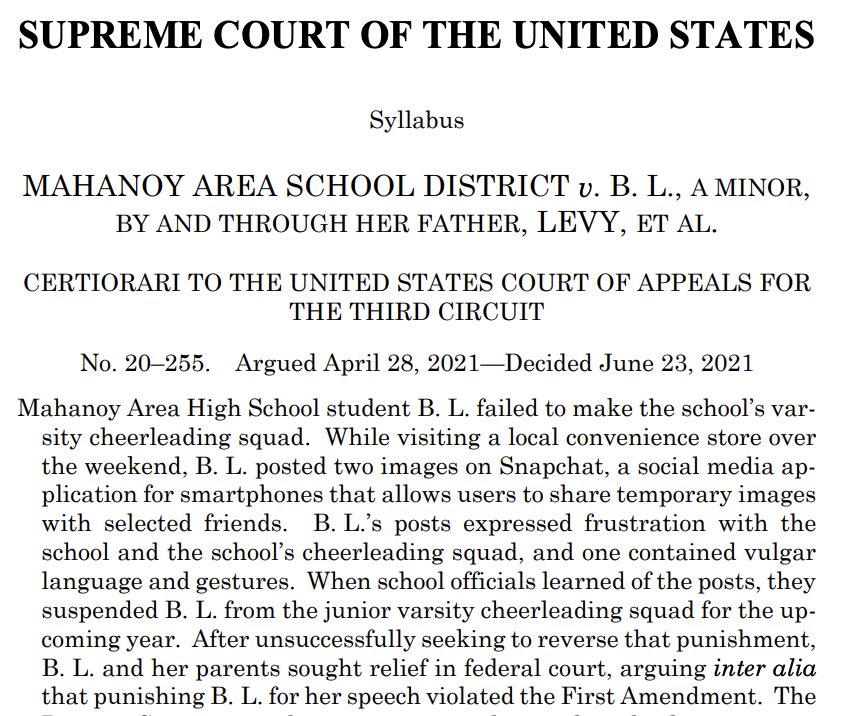
Throughout these lessons, multilingual learners will develop the language necessary for success in the content area of social studies.
Starting with this as the overarching goal of the unit, the lessons build towards the academic language knowledge and skills students will need to analyze and summarize Supreme Court decisions. Students begin with developing foundational language around using verb tenses to articulate when something happened based on a range of texts explored in lesson one. In lesson two, students begin to get more precise with their use of language by using sequence signal words to recount the events of the Tinker case. In lesson three, students build upon their knowledge of using language to get more precise and detailed by adding expanded noun groupings to identify relevant background information about a new Supreme Court case. Finally, in lesson four, students pull together their learning to summarize a Supreme Court decision. The series of lessons include lesson extensions that could be utilized to deepen and/or reinforce student use of language to provide a detailed, sequenced, summary of a Supreme Court decision or to extend their learning about the genre of argue by crafting a public service announcement. Although this series of lessons utilizes sources from Supreme Court decisions pertaining to students exercising their first amendment rights in schools, the topic of focus could be changed to better support student needs or to better align to your topics of study.
Note: Lessons can be extended over a few days or combined depending upon the length of the class periods. We provide a multi-day sequence of lessons: teachers can select the most salient lesson(s) from the sequence, or teach them all.
These lessons were framed around the driving language demands embedded in the expressive language expectation:
- students will construct social studies arguments
- introduce and contextualize topic
- use foundational language that builds towards the language demands inherent in the genre of argue in the social studies classroom
- selecting relevant information to support claims with evidence gathered from multiple sources
- showing relationships between claims and counterclaims
- showing differences in perspectives
- describing evidence and reasoning
Students will practice with language at the discourse, sentence, and word/phrase level while exploring primary sources connected to Supreme Court cases connected to free speech in schools. In each lesson students will build towards the lesson-level language objectives while engaging with both original and modified primary sources.
Download:


